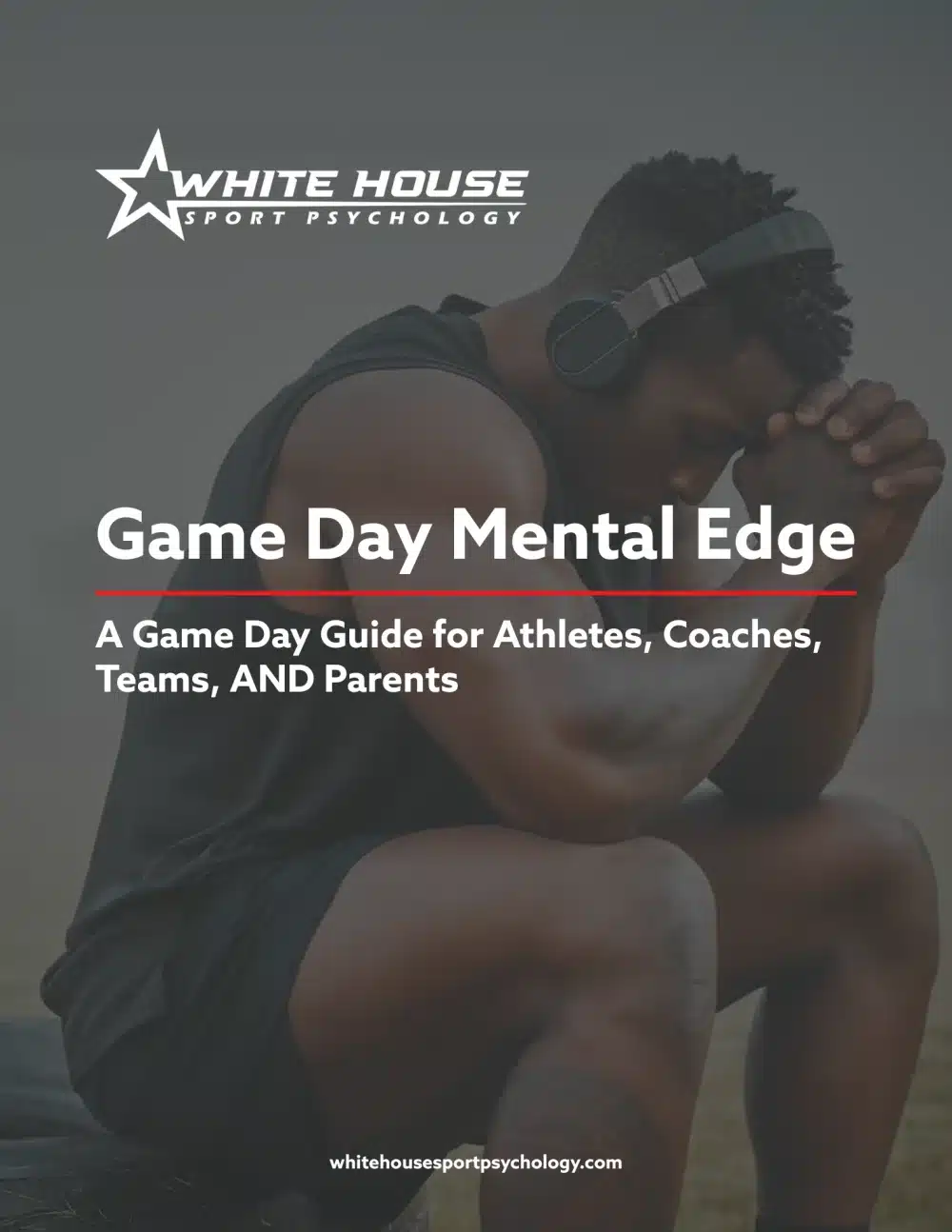As an NCAA athlete, it’s easy to focus solely on the physical aspects of performance—the hours spent in the gym, the conditioning drills, and the goal of improving stats. But the truth is, the most important factor in your success doesn’t always come from lifting heavier weights or running faster times. Instead, it comes from inside your mind. Mental health plays a crucial role in how you perform, recover, and enjoy your sport.
In fact, there’s a direct connection between mental and physical well-being—your brain controls your body, and thus, the better your mental state, the better your body can perform. When mental health is not prioritized, it can affect everything from your reaction time to decision-making to your execution on the field. Plus, the effects go beyond just your performance; your overall sense of fulfillment and enjoyment in the sport can suffer, too.
So, why is mental health just as important as physical fitness? And how can coaches and athletic staff support athletes in caring for their mental health alongside their physical training? Below, we’ll explore the answers to these questions and provide actionable strategies to help NCAA athletes thrive both in and out of their sport.
The Connection Between Mind and Body in Athletic Performance
When you step onto the field, court, or track, it’s important to focus on what your body is doing—the speed, the strength, the technique. But here’s an important truth: your mind still calls the shots in many ways. Think about it for a moment: your brain sends signals to your muscles, telling them when to move, how fast to go, and with how much force. Every time you make a play or execute a move, your brain is actively involved in the process.
This mind-body connection is more powerful than we often realize. When your mental state is in a good place—when you’re focused, confident, and calm—your body tends to follow suit, performing at its peak. On the other hand, when stress, anxiety, or negative emotions take over, it can interfere with your ability to perform.
For example, when you’re anxious, your body reacts by increasing your heart rate and muscle tension, slowing you down or disrupting your coordination. Even something as simple as feeling overwhelmed can affect your reaction time. So, when we talk about improving physical performance, we can’t overlook how crucial mental well-being is to the equation.
When your mind is clear, calm, and in control, your body is more likely to respond with fluidity and precision. It’s not just about lifting more or running faster; it’s about setting your mental state up for success so your body can follow through.
The Impact of Neglecting Mental Health on Performance
When mental health is neglected, the effects don’t just stay in the mind—they show up on the field, in the gym, and during competition. The connection between the mind and body is real, and when the mind is struggling, physical performance can quickly suffer.
Direct Consequences on Athletic Performance
Decreased Focus, Slower Reaction Times, and Impaired Decision-Making
When an athlete’s mental health is off, it’s much harder to stay focused. Anxiety, stress, or emotional strain can cloud judgment, making it difficult to stay present during key moments. This can lead to slower reaction times and poor decision-making, both of which are crucial in high-pressure situations.
Increased Risk of Injury
Mental fatigue and stress can lead to physical breakdowns. When athletes are mentally exhausted, they’re less likely to stay alert to their surroundings or properly assess situations. This can result in a lack of focus during training or competition, making them more prone to physical injury—whether it’s a misstep, incorrect movement, or overexertion.
Inability to Execute Skills at Optimal Levels
Skills are often executed best when an athlete is mentally sharp. When mental health is neglected, even the simplest tasks can become challenging. Whether it’s hitting a mark, maintaining form, or following through with a technique, mental fatigue can prevent athletes from performing at their best. What should be second nature becomes much more challenging when the mind is clouded.
Broader Consequences Beyond the Field
The impact of neglecting mental health goes beyond the physical aspect of performance. In fact, it can affect an athlete’s overall relationship with their sport and well-being in ways extending far beyond game day.
Loss of Enjoyment and Fulfillment in the Sport
Athletes compete in sports for many reasons, including the fact that they experience joy and satisfaction. But when an athlete’s mental health is neglected, that joy and satisfaction can quickly fade. What once brought excitement and passion may start to feel like a burden. Athletes may lose their love for the game, feeling disconnected or disengaged, ultimately impacting motivation and long-term performance.
Diminished Sense of Meaning and Purpose
For many athletes, sports provide a sense of identity and purpose. Sadly, when mental health struggles are ignored, the meaning behind their involvement in sports can start to feel unclear. This disconnect can lead to feelings of emptiness or a loss of purpose, making the athlete question why they’re even participating in the first place.
Psychological Burnout and Emotional Strain
Continuous neglect of mental health can eventually lead to burnout. Athletes may feel emotionally drained, disconnected, or overwhelmed by the demands of training and competition. This emotional strain can affect both performance and personal well-being, causing lasting harm to an athlete’s overall mental health.
The bottom line? Ignoring mental health in athletics doesn’t just impact the mind—it impacts the body, the spirit, and every aspect of an athlete’s experience. Recognizing the importance of mental well-being is essential for athletes to thrive, both in sport and in life.
Integrating Mental Health Care Into Daily Training
In the world of athletics, physical training has always been the focal point. Athletes push their bodies to the limit, constantly working to improve strength, speed, and endurance. But what about mental fitness?
Athletes, coaches, and staff should prioritize mental health with the same intention as physical fitness. Just as athletes work to build their bodies, they also need to work on their minds. A balanced approach to training means acknowledging that the mind and body are interconnected, and neglecting one can negatively affect the other.
Fostering an environment where mental health is openly discussed and prioritized is essential. It’s no longer enough to only talk about how to recover from a tough workout or prevent injury. Coaches and athletic staff need to create a space where athletes feel comfortable discussing their mental health struggles just as they would their physical aches and pains.
Practical Strategies for Coaches and Athletic Staff
So, how can coaches and staff integrate mental health care into their daily routines? Several practical strategies can make a big difference.
Psychological Recovery
Just as cold tubs and compression sleeves aid in physical recovery, psychological recovery is equally important. Encourage athletes to engage in mental recovery activities like reading, listening to soothing music, hiking, or expressing themselves through creative outlets such as drawing, writing, or composing music. These activities allow athletes to process emotions, reduce stress, and reset mentally.
Breathing Activities
Taking a few moments each day to focus on deep, calming breaths can significantly reduce anxiety and help athletes center themselves before practice or competition. Simple techniques like inhaling for a count of four, holding for seven, and exhaling for eight can calm nerves, improve focus, and boost mental clarity.
Mindful Movement
Incorporating activities like yoga, mindful walking, or stretching into regular routines helps with physical recovery and promotes mental relaxation. These movements allow athletes to check in with their bodies, reduce tension, and clear their minds. Even just a short walk after a workout can work wonders for mental and emotional well-being.
Intentional Eating and Self-Care
Encouraging athletes to practice intentional eating—focusing on what they eat, how it makes them feel, and how it fuels their body—can go a long way in supporting overall health. Self-care, from taking time to relax to engaging in hobbies, should be treated as a necessary part of an athlete’s routine. When athletes take care of their minds, their bodies will follow suit.
Play With Pets
It might sound simple, but spending time with pets can significantly enhance emotional well-being. Whether it’s playing with a dog, cuddling a cat, or just enjoying some quiet time with an animal, these moments help reduce stress and foster joy. That’s because our body releases oxytocin—a hormone that makes us feel good—when playing with a pet or petting an animal.
Regular Check-ins With Mental Health Providers
Just as athletes have regular physical exams, they should also have mental health check-ups. Encouraging athletes to meet with mental health professionals regularly—whether once a season or annually—can help them stay on top of their emotional well-being, just as they would with a physical exam.
Role of Coaches in Leading by Example
As a coach, one of the most powerful ways to integrate mental health care into training is leading by example. When coaches talk openly about the importance of mental health, share their own experiences with stress or emotional challenges, and actively encourage athletes to prioritize their mental well-being, it sends a clear message: mental health matters.
By showing vulnerability and offering support, coaches can create an environment where athletes feel safe and empowered to care for their minds as much as they do their bodies. The more coaches openly prioritize mental health care, the more athletes will feel encouraged to do the same.
How White House Sport Psychology Can Help Athletes Prioritize Mental Health
At White House Sport Psychology, we understand that an athlete’s mental well-being is just as crucial as their physical training. Mental health and physical health go hand in hand, and our approach ensures both are given the attention they deserve.
Every athlete is unique, which is why we offer personalized support tailored to meet your specific needs. Whether you’re looking to improve focus, manage anxiety, or recover mentally from a challenging season, we work with you to develop a plan that addresses your mental health challenges and performance goals.
If you’re a coach or athletic director, we also bring these services to your team. With in-person and virtual sessions available, we make it easy to incorporate mental health care into your athletes’ routines and create a supportive environment that prioritizes well-being.
Ready to take the next step? Schedule a consultation today, and let’s work together to help your athletes thrive both mentally and physically!

